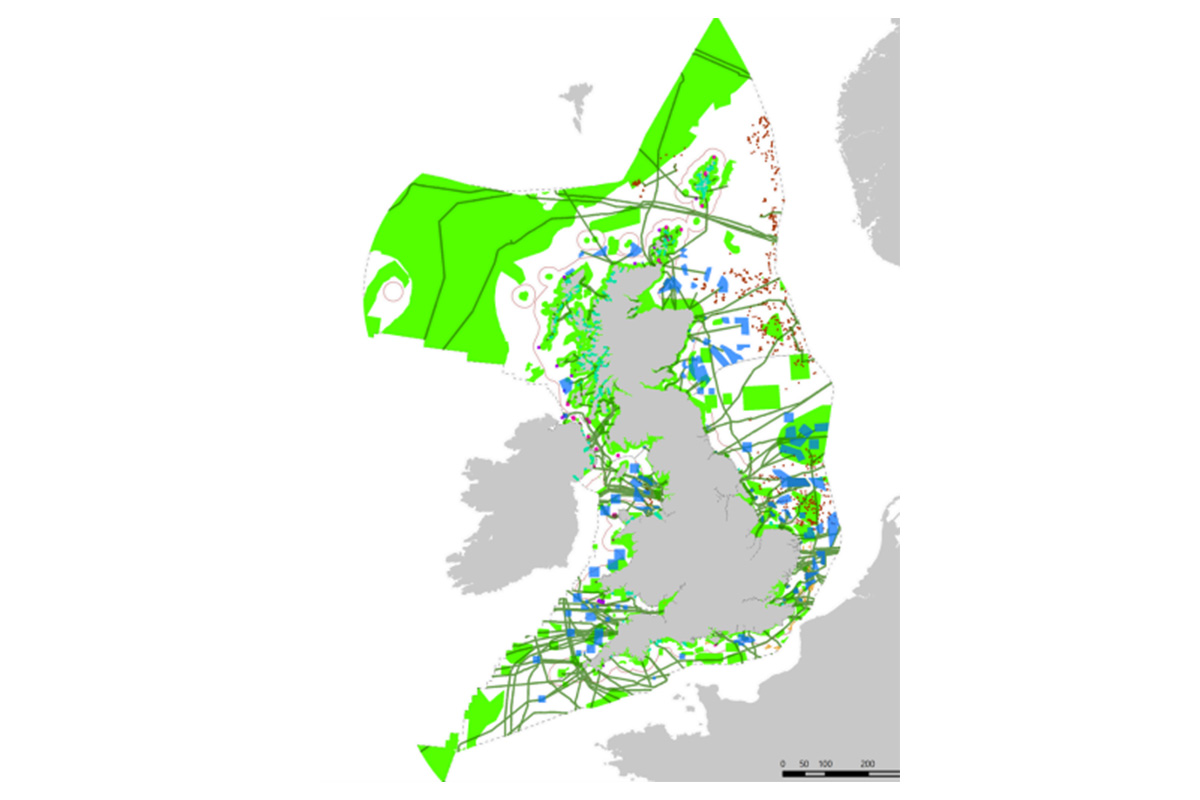
The Cornish FPO published last week a detailed analysis and take-down of issues around the increase in blanket marine conservation measures. ‘Setting the national security balance: food, energy and nature’. The PO argues that ensuring food security, the future of fishing communities and wider marine environmental protection are – or should be – aims that can be combined.
However, the reality appears to be a deadline rush, driven by eNGOs and other commentators, to see fishing excluded from large areas. This will devastate the industry, with little or no benefit to the wider environment.
Cornish FPO chief executive Chris Ranford (pictured above) told FN: “The CFPO published the ‘True value of seafood to Cornwall’ report earlier this year, which determined that for every one fisherman in Cornwall there are 15 jobs supported across the supply chain – a total of 8,000 jobs. On top of that are fishing’s intrinsic links with tourism and hospitality, not to mention the fact that fish landed into Cornwall last year created the basis of 40m protein portions.
“With several conflicting high-level policies set to cause unprecedented disruption to traditional and important fishing grounds and the sector, this new paper highlights the importance of striking a balance when developing the marine space for nature recovery and energy and food security – something which the incoming government must understand and do better.”
The paper has sections discussing issues such as HPMAs and other conservation zones, food security and environmental protection, all in the context of managing the future in a way that will foster a responsible and productive fishing sector for the long term.
The detailed seven-page document will be circulated to election candidates, including all previous West Country MPs campaigning for re-election, and civil servants within Defra.
Two extracts from the report are included here, and the full document is available here.
Unintended consequences
“Many of the most challenging issues in fisheries management have their origins as unintended consequences of previous policies. The issue of unintended consequences now looms larger than ever before.

An in-depth study commissioned by the NFFO and SFF in 2022 suggested that if the roll-out of offshore wind, aggregate extraction
and marine protection continues at its current rate, more than 50% of trawl grounds will be lost to the fishing industry. This map, included in the report, shows the extent of UK seabed already designated for MPAs, offshore wind and other uses.
“Management measures within MPAs, along with potential displacement by the huge amount of marine space required for offshore renewable energy, has the capacity to displace fishing vessels from their customary grounds on an enormous scale. One third of mobile-gear fisheries (best case) or a half (worst case) could be displaced according to the ABPmer study commissioned by NFFO/SFF in 2023. The scale of unintended consequences flowing from this shift is likely to be of a magnitude so far unseen. Consequences arising from displacement from customary fishing grounds may be unintended, but many are foreseeable. Some of the more obvious consequences include:
- Overcrowding of adjacent (or distant) fishing areas, creating conflicts between existing fisheries and displaced fishing activities (gear conflicts)
- Sub-optimal fishing patterns, including obliging vessels to steam further to get to fishing grounds, with higher fuel consumption with increased carbon emissions
- Undermining the basis for rational fisheries management by degrading fish stock assessments (which use historic patterns that are then extrapolated into the future to make estimates of biomass and fishing mortality)
- Higher costs and lower incomes, jeopardising resilience of individual fishing businesses, fishing communities and the whole value chain
- Obliging vessels to fish harder (longer) in order to maintain economic viability and pay crews • Making the task of designing and implementing fisheries management plans infinitely more complex
- Degradation of the marine environment outside the MPA network through displacement effects
- Diverting resources from fisheries management – as has been the case with Inshore Fisheries and Conservation Authorities, as the risk assessments necessary to defend sustainable fisheries have swallowed budgets and staff.”
Mis-selling MPAs
“Whilst MPAs have an important role in safeguarding biodiversity, it is also true that parts of the conservation lobby have mis-sold and over-sold Marine Protected Areas.
“In particular, MPAs have been promoted as a kind of panacea for all sorts of ills, including the (alleged) decline of fish stocks and climate change. Campaign literature has routinely skipped over fishing’s role in food security to create in the public mind the notion that no fishing should take place within MPAs.
“In an increasingly adversarial and litigious climate, government has been slow to robustly challenge this notion, and some ministers have actively encouraged it. This is starkly in contrast to the approach on land, where national parks are promoted as areas in which sustainable farming, forestry and an array of other rural activities are pursued as desirable aims.
“These distortions have been at their most visible in media and campaign attacks targeted at large pelagic vessels (‘supertrawlers’), which make an easy target because of their size but whose gear never touches the seabed, operating as they do far up in the water column. As a rule of thumb, it can be taken for granted that if the word ‘supertrawler’ is used, ignorance or mischief is at work.”
This story was taken from the latest issue of Fishing News. For more up-to-date and in-depth reports on the UK and Irish commercial fishing sector, subscribe to Fishing News here or buy the latest single issue for just £3.30 here.
Sign up to Fishing News’ FREE e-newsletter here.








